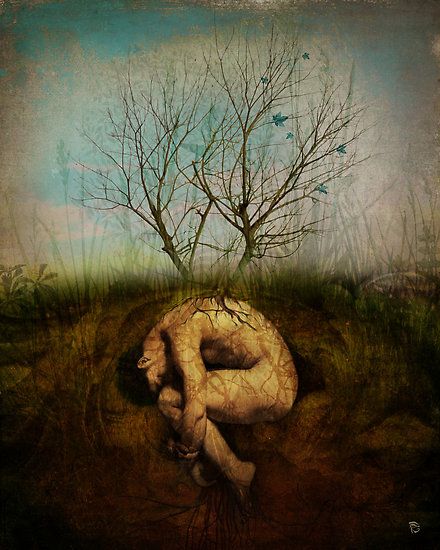
St. Paul says you are the dwelling place of God. Is this how we normally understand ourselves? To be dwelling places inhabited by God? This is a very powerful assertion; do we take it seriously and understand what it means and what our lives mean in the context of such a statement? Do we live consistently with such a statement?
The present article is the fourth lecture in the series: “Prayer of the Heart in an age of technology and distraction” delivered by Fr. Maximos (Constas) in Feb. 2014 to the clergy of diocese of LA and the West of Antiochian of N. America at the invitation of His Eminence Metropolitan Joseph. The audio version of this lecture first appeared on Patristic Nectar Publications, and is published here by permission.
Fr. Maximos is the presidential research scholar at Holy Cross Greek Orthodox School of theology in Brookline, MA. He is an Athonite monk, one time professor at Harvard Divinity School, accomplished author and translator and lectures internationally in both academic and parochial venues.
* * *
It’s a wonderful thing to be able to begin the day with the Divine Liturgy. In the monastery, outside of Lent we have the daily Eucharist. Once a visitor asked us why we celebrate the Liturgy so much, and our answer is because every day is a new day, a new beginning, or at least the opportunity for a new beginning, and what better way to begin that new beginning apart from the Divine Liturgy?
We began by talking about distractions and how they’re an innate problem exacerbated by the culture we’ve built of or organized distractions with a shift from the inner life to the outer world, from the depth to the surface, and how the spiritual tradition of the Church runs in the other direction, to encourage us to collect our thoughts and concentrate our attention within ourselves. We’ll continue along these lines. The title of my remarks today is, “The Buried Seed,” and what that means will become clear as we move on.
As a result of the distractions we experience we end up living outside and far away from ourselves, or simply living in our heads, so to speak, and not in our deeper center. We live on the surface and not in and from our depth. We have an outer life, and often it’s very busy and complicated but it’s not always clear that we have an inner life. The image the Church Fathers often use is of the onion that has layer upon layer upon layer of complication, and when you get to the center there’s nothing there at all. The problem is that if we live in our head and thoughts, God will always be a reality that is external to us. For many people God is an idea or concept or something to be argued about. God remains external and our thoughts swarm around us like so many flies, and they distract us from ever knowing God. But if we undergo that shift from the outer to inner and from mind to heart then God ceases being simply an idea but becomes a living and powerful reality.
There’s a great story about this from the desert fathers. There were three brothers and one of them decided to be a peacemaker. The second wanted to feed the poor. The third brother decided to go to the desert to pray. The peacemaker gets involved in peacekeeping organizations with politicians, but over time he finds that no matter how hard he tries he can’t get people to reconcile. Despite all efforts, fighting and war and killing continues, and he becomes very tired from working so hard without results, so he begins to lose his faith in human nature. He gives up and goes to see how the second brother did. And the second brother tells him that he has a similar story. He set up a soup kitchen and gathered all the food, but found that no matter how much work he did there were more hungry people, and he was sad and frustrated. So together they went to see the third brother and told him their stories about difficulties in the world. The third brother thought for a minute; there was an empty bucket on the ground where they were sitting. He told them to take the bucket to the spring and fill it up and bring it back to him. And the brother picked up a stick and stirred the water, and told them to look in and see what they could see. They couldn’t see anything because the water was agitated, so he told them to wait a minute. They waited and when they looked again they said, “We see ourselves.” The brother replied, “And that’s what happened to you in the world. You went into the world and you were caught up in the chaos and disorder and agitation of the world and you lost yourself.” The remarkable thing about this story is that they set out to do good—nothing evil or corrupt. They were pursuing the commandments of the Gospel but nonetheless found themselves lost in their work and losing their faith in humanity. The message here is that we really can’t be successful at our ministry if we lose that connection with the deeper part of ourselves—if we don’t know who we are, essentially.
In another story someone asked a desert father what is necessary to be saved and he said, “Every day ask yourself, ‘Who am I?’” In the world we get lost and forget who and why we are, which is another reason why staying connected to the deeper ground of our being, which is God, is so critical for all that we do. God is not out there somewhere, but rather somewhere within us, woven into the very fiber of our being. God is closer to you than your own jugular vein; and when Christ was asked about the Kingdom of God He said it is not to be observed by external signs, but the Kingdom of God is within you. According to St. Paul your body is a temple of the Holy Spirit Who lives within you. The body as a temple has received elaborate treatment from the Church Fathers so that all of the forms of an Orthodox Church are replicated in the human body. There’s an altar in the Church and there’s an altar in the body, which is the heart.
Elsewhere St. Paul says you are the dwelling place of God. Is this how we normally understand ourselves? To be dwelling places inhabited by God? This is a very powerful assertion; do we take it seriously and understand what it means and what our lives mean in the context of such a statement? Do we live consistently with such a statement? Also from Galatians 4:6: God has sent forth His Spirit into our hearts. That will be key for the rest of this talk—the relationship between the Holy Spirit and the heart. In 1 Cor. 6:20, because all of these things are so, because we are that dwelling place, Paul urges us to glorify God in our body. The body has to participate in the mystery of the divine indwelling. God says in Lev. 26:12, quoted by St. Paul in 2 Cor. 6:16, I will dwell in them and walk in them and I will be their God. These are just a few of the many statements to demonstrate from Scripture that God dwells in us.
The shift from exterior to interior is not simply a monastic idea. It’s part of basic Christian living. We don’t do this because we’re told to, but because it’s what’s good and best for us. This is what’s best for us. I’m reminded of one of the many wonderful quotes from Augustine’s Confessions where he says to God, “I was looking everywhere for you, but I was looking outside of myself.” I think many of us look for happiness outside of ourselves, or consolation or redemption in other people and things and achievements, striving for some tomorrow that will come when everything will be better by virtue of the external things we acquire. This is illusory and delusional. St. Maximus says that the person who has virtue doesn’t need anything else. But if you don’t’ have God it doesn’t matter how much you have, you’ll never be happy. So St. Augustine says, “And all the while that I was on the outside, You were on the inside.” So much of his earlier life was spent in this vain pursuit of externals until he realized that the fulfillment and love that he sought had its root deep within his own person. So the solution to our distracted and fragmented psyches is the practice of inwardness, inner attention, and watchfulness, which means sobriety in the sense of being alert and vigilant. To withdraw, if only partly or for a time, and return our attention to our heart, the center of our being. All of this is clear from the Scriptures I quoted and from the whole history of Orthodox spirituality.
If we take a text like the life of St. Anthony the Great as a normative and foundational text in the history of monasticism and spirituality in general, what is the very first practice that he is described as doing? He begins to slowly dispossess himself of property, and before he leaves for the desert he begins to practice an ascetic life on his family’s estate. The first thing he does is to attend to himself—let us be attentive. He wasn’t concerned with the neighbors or politics or the news. His attention was turned inward. St. Basil, a younger contemporary of St. Anthony, has a whole homily on this theme called Attend to Yourself.
This passage of attending to yourself is from Deut. 15:9 where Moses speaks to the Israelites and tells them, Attend to yourself, lest a secret lawless word enter into your heart. In that short phrase the early Christian ascetics and spiritual strivers found their whole spiritual program—this idea of attending to oneself and maintaining vigilance over the mind and heart, lest secret lawless words enter into your heart. If you don’t keep vigilance over your mind and heart every manner of evil thing will get in there. It’s easy to let our thoughts roam at will, and daydream and drift away in fantasies, be they pleasant, sexual, revenge, or whatever. We actually have a choice here. We can let these thoughts drift into ourselves and accumulate within and acquire their own energy within us, or we cannot allow them to have entry. When I first read this I thought it was just a Christian version of the Socratic “Know thyself,” but there’s actually a tremendous difference between knowing thyself and attending to yourself in the manner that I’ve described.
In the first place, I’m not sure we can know ourselves. For Plato and Socrates, knowing yourself was related to the idea of a previous life, or the recollection of innate or possibly prenatal knowledge acquired in a previous existence. It’s very different. Even in Christian theology I don’t know that we can know ourselves, because the person is a mystery, and that mystery has an infinite depth that no one can fully fathom. When Elder Sophrony was writing the Life of St. Silouan he began by saying what a bold and even rash thing it is to presume to write the Life of another man. Who can know the heart of another man? We can’t even know our own hearts, how can we know another’s? Knowing thyself is off the table for us. But to attend to yourself is within our ability and that has tremendous practical value.
I’ll give you a simple example. The other day I was on campus and someone said something to me that was very rude, and passive aggressive. It was kind of hurtful, but I was so busy at the time that I couldn’t think about it, but it did strike me as weird. I didn’t have time to engage it or let it affect me, but when I got back to my apartment at night, and had a moment of silence, guess what? That thought was there. It waited for me all day. I heard something telling me, “What? You’re going to let him get away with that? You’re going to take that from him? If you let him get away with it then they’ll think you’re weak and walk all over you.” I looked at it for a minute but then I thought, “No, I’m not going to go down this road.” I could have succumbed to that negative, outer edge of my bruised pride, festering all day and waiting for me. The mind magnifies, distorts and self-justifies, but I resolved to not go down that path which is just a dead-end. That’s what it means to attend to yourself, which is very different from the Socratic, “Know thyself.”
But why this attention to the self? Because it can be misunderstood. It might sound like just more self-centeredness and solipsism. Aren’t we already so self-absorbed? The answer is no—this is not self-centeredness, but rather something very different. The reason we focus our attention on our heart is because at our baptism we received the gift of the Holy Spirit, which is why the celebrant says, “The seal of the gift of the Holy Spirit,” and the Tradition of the Church is that that gift is placed within the center of our heart. The locus of the Spirit’s presence within us is the heart. It is in the center of our being. That’s why all the attention to the center of the heart—it’s not about me and getting in touch with my feelings. It’s about me getting in touch with this Divine element placed within me. Now here’s the key—yes, we have received the gift of the Holy Spirit; but how? As a tiny seed, or as a small spark. As a seed. This is Biblical language.
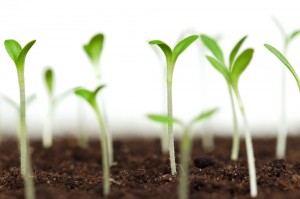
St. Macarius says in his homily no. 28 (from another collection that is not yet available in English): “Isaiah 42:14: I have been silent, I have waited patiently, I have endured like a woman in travail. If you see in yourself that the source of the Holy Spirit is overflowing within you, this is the sign that just as the Savior said the Kingdom of Heaven is not here nor there but it is within you.” If you feel that spark and stirring within you, know that this is the Kingdom of Heaven with you. “And St. Paul says the Kingdom of God does not consist in words but in power”—which in Greek also means potentiality, of the Holy Spirit waiting for us to cooperate with Him. “There are some who speak about the Kingdom, but who do nothing about it. And there are others who do something about it without uttering a word, and on these latter the Holy Spirit has descended and fulfilled in them the words of John the Evangelist: to those who believed on him he gave them the power to become sons of God, not from flesh or blood or the will of man, but they were born of God.” Being born presupposes that seed. There’s no growth without a seed. “These are the ones who have experienced the joy which overcame Mary, insofar as the Spirit of God shall come upon you, and the power of the Most High shall overshadow you. For just as pain and sorrow came upon Eve and all her offspring until now, so too does the joy of Mary come upon all of her descendants… Let the wise virgin soul know that she should bear Christ in her herself just as Mary did. I mean in her heart, just as Mary held Him in her womb.”
We’ve been hearing in the hymnography over the last few days of this parallel of Christ being held in the womb of Mary and being held in the arms of Symeon. It’s even in the Kontakion—“You who sanctified the virginal womb and blessed the arms of Symeon.” This is another enwombing or bearing of the Word. “And then the soul will be able to say and to sing with understanding, (Isaiah 26:17:) on account of the fear of you O Lord we have conceived in the womb and we went into labor and gave birth to the spirit of salvation.” You don’t have to go to St. Anthony or St. Basil—it’s all the way back in the prophets and Deuteronomy. The tradition is there but you have to know what you’re looking for, to understand anthropology. “If you have this treasure in your vessel of clay, this means that the one who said let light shine from the darkness has shone in your heart the light of knowledge of the Gospel. For if Christ dwells in you this means that God has made His abode and dwelling place in you. If, that is, you have been accounted worthy of becoming a temple of God.” This is Pauline language. “You have become a temple of God through the purity of your heart so that the spirit of God now dwells in you and fills you with the assurance of faith. Once we were children of Eve, now we are children of Mary. Once we were under the sway of evil thoughts, now we are under the sway of the Holy Spirit.”
This Macarian sermon is probably a fourth century text but if we jump to the thirteenth and fourteenth centuries we’ll find similar language. There is a passage of Gregory of Sinai from the Philokalia in which he plays out this idea of the seed of the Holy Spirit through the life of Christ so that the life of Christ is two things—the historical life of Christ and a spiritual allegory for the life of the believer. He says “everyone baptized into Christ must pass progressively through all the stages of Christ’s own life. For in Baptism he receives the power to progress and through the commandments he can discover and learn how to accomplish such progression. To Christ’s conception corresponds the foretaste of the gift of the Holy Spirit. To His Nativity, the actual experience of joyousness; to His Baptism the cleansing force of the fire of the Spirit; to His Transfiguration, the contemplation of the Divine light; to His Crucifixion, the dying to all things; to His burial, the indwelling of Divine love buried in the heart; to His Resurrection the soul’s life-quickening resurrection; and to His Ascension, Divine ecstasy and the transport of the intellect to God.” Every major Gospel event becomes a type or pattern for the Christian life. The inwardness is essential because that’s the path to the indwelling of the Spirit within us, and when we’re far from this we’re far from the source of our own salvation.
I want to conclude this talk by looking at a text from St. Maximus the Confessor from his Questions to Thalassius, who was a Libyan abbot and friend who sent him a series of difficult passages from Scripture and asked for an explanation. This is the sixth question, and you’ll see this is how they often work—two Biblical passages that seemingly contradict are brought together for St. Maximus to offer a harmonization. If, according to St. John he who is born of God does not sin because God’s seed is in him (1 John 3:9) then how are we who are born of God through baptism still able to sin? There are two Greek words for “seed”—“sporos” like a spore and “sperma”. Here its “sperma”—it’s not a benign agricultural image, but physical procreation. I grew up reading this passage in the Bible and the word that my Bible had was “nature”—he does not sin because God’s nature is in him, and when I saw that St. Maximus has here “sperma” I wondered if this is his variant reading. But, the Greek says “sperma.” So the one birth talks about sinlessness and the other birth is baptism, and everyone knows that sin happens after baptism, so what’s going on here? Here’s St. Maximus’ answer:
“The mode of our birth from God is two-fold. The first bestows the entire grace of adoption on those born of God, but only in potential. The second ushers in this grace as entirely present in actuality.” What was only implicit is now explicit. It’s like I have the potential to learn to play the violin but I don’t own one right now and I haven’t contacted a teacher. I have the potential but not having acted on it it’s not actualized. “The second mode ushers in this grace as entirely present in actuality, transforming voluntarily the entire free choice of the one being born so that it conforms to God Who gives birth. The first possesses the grace of adoption present in potential through faith alone, but the second in addition to faith possesses the grace that actualizes according to knowledge the Divine likeness,” because sons have likenesses to their fathers, and so children of God must bear some likeness to their Divine parent. It “actualizes according to knowledge the Divine likeness of the God Who is known in the one who knows Him.”
Knowledge here is much more than just information, but a deeper understanding between the knower and the Known. “In those whom the first mode of birth is observed it happens that because of the disposition of their will has not yet been fully extracted or torn away from its passionate fixation or attachment to the flesh,” not just human tissue here—but the mind of the flesh, “and because they have not yet been completely imbued by the Spirit, (St. Maximus loves this language of the Divine imbuing humans with His own qualities—He makes His compassion our compassions, and His love our love, etc. He loves to give us all the characteristics that are by nature His to us by grace. That’s what it means to become like Him, because He freely gives us His Uncreated Energies—Wisdom, Justice, Compassion, Truth, etc.) with the active participation in the Divine mystery that has taken place.” They were baptized but they haven’t yet actualized all of the potential that is there in the mystery. Because of this, “their inclination to sin is never very far away for the simple reason that they continue to will it. For the Spirit does not give birth to a disposition of the will without the consent of that will,” because God will never override our freedom, even though sometimes we want Him to. Sometimes we think: “Please take away this terrible double-edged sword of my freedom that can be used to save me and also used to destroy me.”
In Dostoyevsky’s story of the Grand Inquisitor, Christ is criticized and mocked by him saying, “You gave people their freedom and you were foolish to do that. We know they can’t handle that and so we took it away and that’s why they love us and hate you.” Students are enamored with authority—“Tell me what I should write about.” “Tell me what to do.” Or, “Elder, which car should I buy?” A real teacher does not deprive his disciples of their freedom but helps them to assume and acquire their freedom and to prepare them for life without the teacher. Elder Aimilianos used to say, “You come to me for everything. What will you do when I’m gone?” The real teacher is he who prepares his disciples for the future. In the end the true master is alone. Parents do what they can for their kids and build them up, and then they have to let them go. “But to the extent that the will is willing He transforms and divinizes it.” All that depends on us is simply the inclination of our will. That’s all. It’s very simple and also very hard, because our will is compromised and bound by passions. But it all comes down to the inclination of our will—either “yes” to God, or “no” to God.
“Whoever has shared in this deification through experience and knowledge is incapable of reverting from what he once and for all truly and precisely became cognizant of in actual deed. You can’t leave that to something else besides this, which merely pretends to be the same thing, no more than the eye, once it has seen the sun, could ever mistake it for the moon, or any of the stars in the heavens. In those, on the other hand, undergoing the second mode of birth, the Holy Spirit takes the whole of their free choice,” (you’ve cut off the impulses of your ego and surrendered your will to God) “and transposes it completely from earth to heaven, and through true knowledge realized in actual deed refashions the intellect with the blessed beams of the light of God the Father, so that it is deemed another god experiencing through a state” (the disposition is something transitory. One day we’re this way and then that way, but this “state” is an Aristotelian term—it’s a permanent state of character) “obtained by grace that which God does not experience but simply is according to His essence. In them, their free choice clearly becomes sinless in conformity with their state of virtue and knowledge. And thus they are unable to negate what they have become cognizant of through actual experience. So even if we should possess this spirit of adoption, which is a life-giving seed that bestows the likeness of the sower upon those who are born of it, but does not offer Him a disposition of the will pure of any propensity or inclination towards something else, we will, as a result, willingly sin even after being born through water and the Spirit. But if, on the contrary, we were to prepare the disposition of our will, to receive in knowledge (in the guts of your being—a deep awareness) the operations of the Spirit, then through our practical asceticism the mystical water would cleanse our conscience, and the life-creating Spirit would actualize in us the unchanging perfection of the good through knowledge acquired in experience. What is lacking therefore in each of us who are still able to sin is the unequivocal desire to surrender our whole selves in the disposition of our will to the Spirit.” This is typical St. Maximus—very powerful, very far-reaching, and very, very dense—all in just one paragraph.

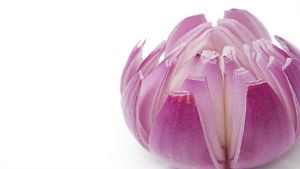
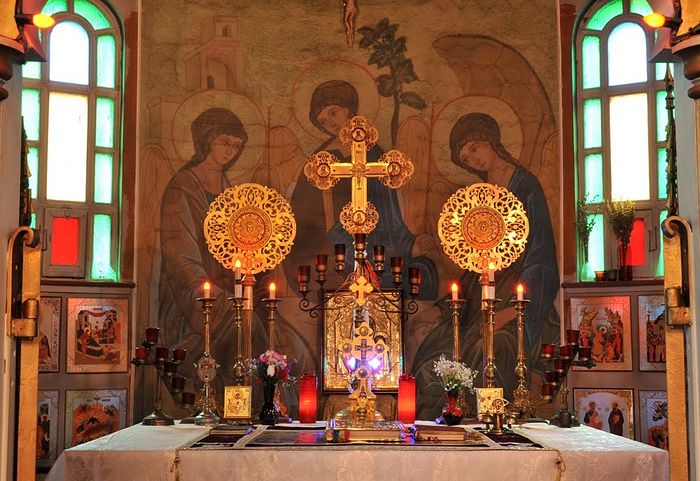

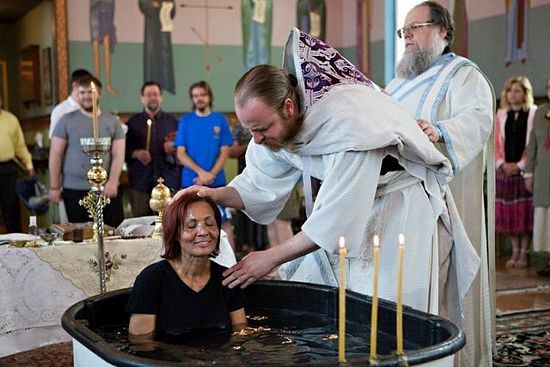
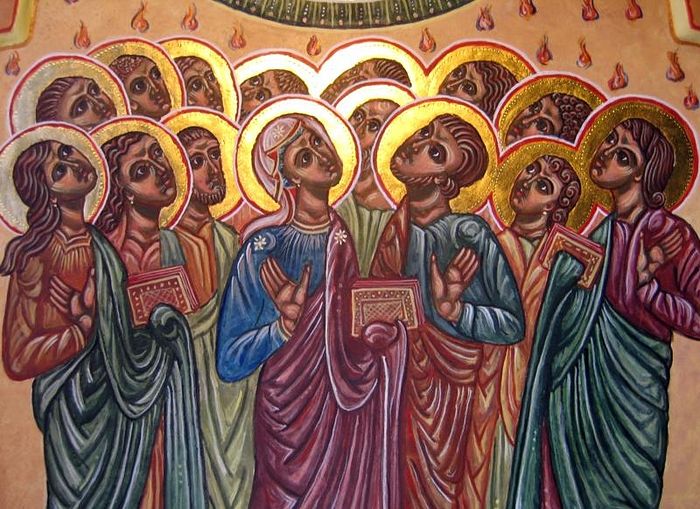

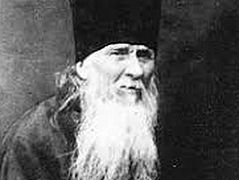
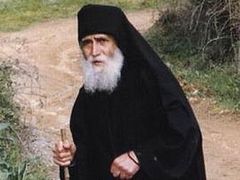
Do you have the English Translation of St Maximus the Confessor's Questions to Thalassius, especially questions 64 and 65? If you have a translated book or any english translation, please let me know because I want to buy it. I am a student priest at Pontifical University of the Holy Cross, I am working on the thesis regarding questions 64 and 65. I have a copy but a French translation by Carl Laga and Steel. I have difficulty translating french to english, very difficult.
Thank you very much,
Fr Ian Calabria
Student-Priest
calabria_ian@yahoo.com